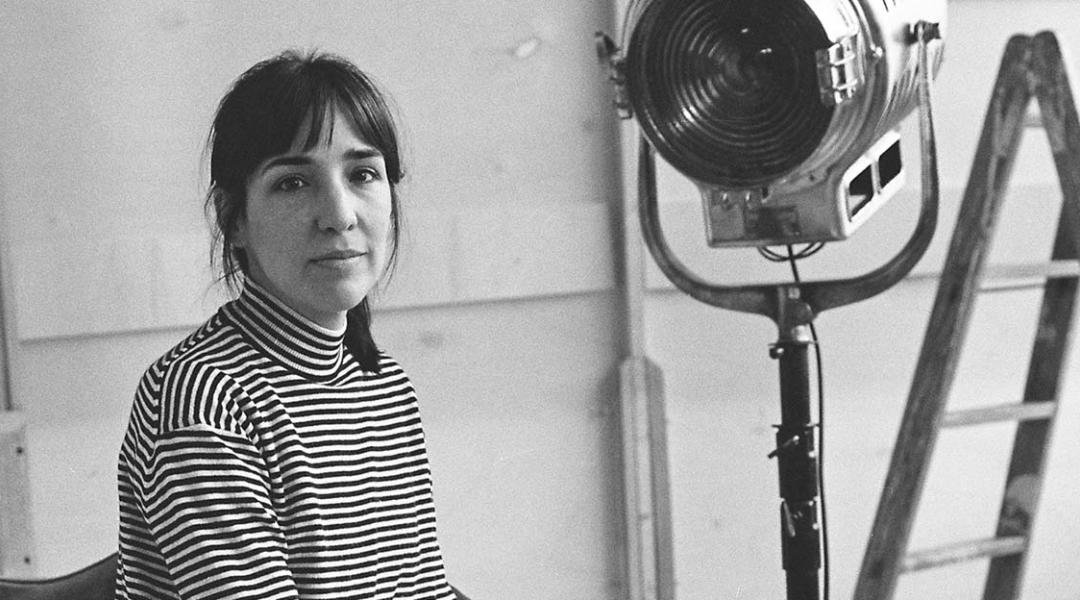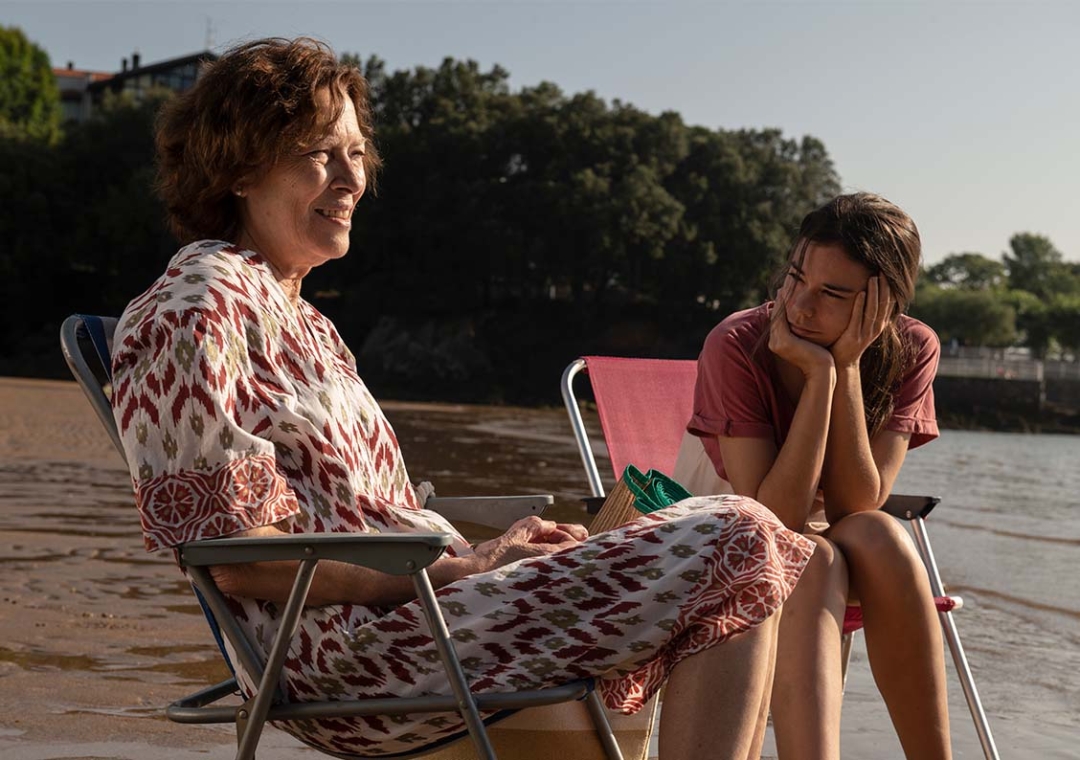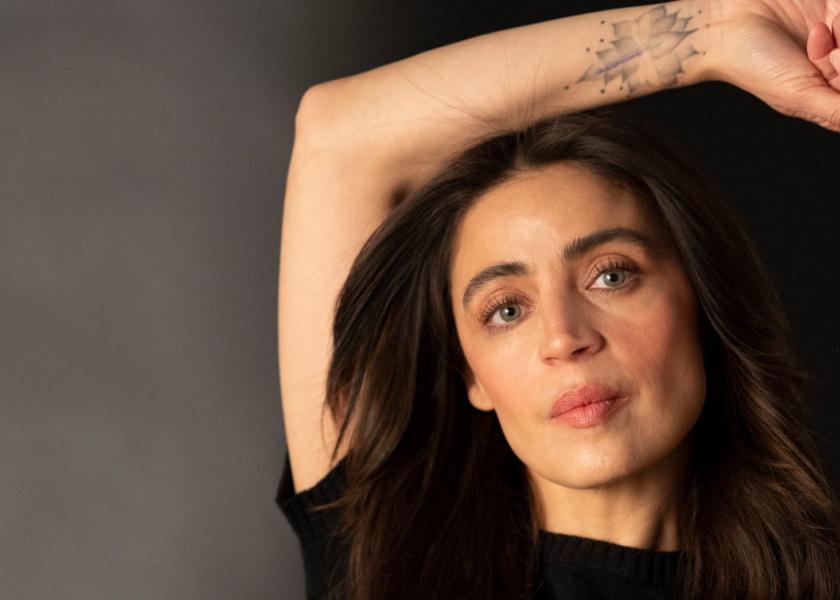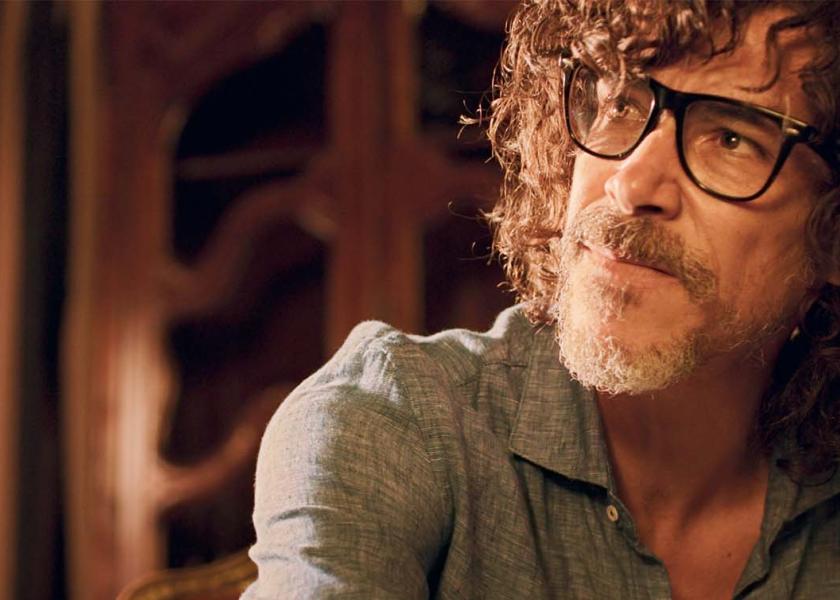Alauda Ruiz de Azúa
Lullaby

The Spanish film industry has a new rising star, and indeed, as is becoming the norm in recent times, it’s a woman: Alauda Ruiz de Azúa. According to Pedro Almodóvar, 'Lullaby' (original title: 'Cinco lobitos') is “the best debut in years”. A film that, after taking the Málaga Film Festival by storm with four awards —best film, actress (Laia Costa and Susi Sánchez), script, and critics— is moving thousands of filmgoers.
“Cinco lobitos” [Five small wolf-cubs] is a Spanish lullaby passed down from generation to generation, an unchanging testimony of how motherhood evolved over the last decades. Sure? Despite progress in gender equality, it’s still women who bear the brunt of child rearing and who pay a higher price professionally. This is the focus of Lullaby, the excellent directorial debut of Alauda Ruiz de Azúa (Barakaldo, 1978) starring two caring mother wolves, Susi Sánchez and Laia Costa (mother and daughter), who delve deep.
How did Lullaby come about? Which is the seed that this story sprouts from?
It’s not an autobiographical story in the sense that I tell a story that’s happened to me, but the trigger to writing the script is personal experience. Motherhood changed my view, I started to see my parents differently, and had to re-evaluate a lot of things personally. I wanted to delve into everything that motherhood triggers at an emotional, personal, and family level, and that’s how I took notes and put together the story, choosing the story of a mother and daughter.
In the film, we see how the weight of child rearing falls on the protagonist, have women’s roles as mothers changed less than we think?
As a society, we’ve changed a lot, particularly the social and media conversation. Now, fortunately, we address and question topics that didn’t even exist before, but there are cultural habits that are so strong that they’re really hard to change. We’re aware that inequality exists, that mothers pay a higher price in terms of career and work-life balance, but we’re still light years away from a scenario where joint responsibility within the couple is a reality.
“I wanted to delve into everything that motherhood triggers at an emotional, personal, and family level”
You’ve said that “being a mother changed your view”, regarding your parents, for example. Becoming a mother doesn’t mean you stop being a daughter?
Being a mother means you don’t stop being lots of things. Motherhood is different for each person, but it changes you one way or another. You create a strong bond with a vulnerable being, your child, and your entire life shifts. And it’s easy for the role of mother, with the learning it entails, to absorb everything. I was really interested in the topic of care, how we take care of others, because that’s precisely where affection resides in all families, especially those that are less explicitly affectionate.
Let’s go back in time for a second; where does your passion for film come from?
Perhaps because I’m an introvert, not shy, I found comfort in activities such as reading or films. Film, I remember since I was tiny, helps you understand yourself and moves you. I’m from a generation that saw all kinds of films, even if they were for adults, and that got me hooked on stories that made me think “I don’t fully understand this, but I want to know what else happens”. Films about characters, about relationships... You try to imitate what fascinated you when you were little, and that’s where my passion comes from.
“I was really interested in the topic of care, how we take care of others, because that’s precisely where affection resides in all families”
You made your short debut in 2005 with Clases particulares and your first feature-length film is playing in theatres in 2022, how hard is it to get a film going?
It’s hard... Although in my case, I also struggled to find the story. For a while, I felt comfortable doing advertising and shooting my short films when I wanted to do something more personal. Also, I didn’t think the industry was interested in the kind of stories I was. When I was certain, processes drag on... It’s taken us five years, one where everything came to a complete standstill because of the pandemic, to get this project going.
Lullaby took Málaga Film Festival by storm; do you see yourself succeeding at the next edition of the Goya Awards or would you rather not think about it?
I’d rather not think about it... The world of film is really complicated and uncertain. I feel like Lullaby has had such a sweet journey up until now, and it was so unlikely, it’s almost a miracle. Magical things have already happened to this film. I’d love to go to the Goya Awards and for the actors’ hard work to be recognised, of course, but I don’t think about it because getting a feature film going takes a long time and it’s best to go chapter by chapter.

Susi Sánchez and Laia Costa, both award-winners at the Málaga Film Festival, play mother and daughter in ‘Lullaby’. © BTeam Pictures
Clara Roquet, Carla Simón, Pilar Palomero, Belén Funes, Arantxa Echevarría an now you, all female talent, ¿is the future of Spanish film in your hands?
That wouldn’t be a bad thing, would it? (laughs). I think that, slowly, we’re seeing the results of questioning certain things. Now there’s a new generation of female directors, scriptwriters, cinematographers... More than exceptional, it should be completely normal. What’s odd is that there’s only around 15% of female directors in a society that’s supposed to be equal.
Pedro Almodóvar has described Lullaby as “the best Spanish film debut in years”...
When I read them, I was trembling. People told me to retweet it, and my finger was shaking (laughs). Reading something like that from a filmmaker you admire, that’s so freeing and personal, and that places value on something you do is so exhilarating, as well as being great for the film.
Your talent is being recognised by critics, the public, and colleagues, but what does that word mean to you?
For me, there are different kinds of talent, but one talent that I love when creating, that inspires me and motivates me is related to the ability to think outside of the box and have a more personal point of view. That seems like a talent to me, and not everyone has it.
“The film has had such a sweet journey up until now, and it was so unlikely, it’s almost a miracle”
Humour and emotion go hand in hand throughout the film, bringing smiles and tears to people’s faces, how do you achieve that balance?
The tone of the film, which is always something more abstract, was really important to me. I needed it to not fall into melodrama, for it to be relatable and for it to blend that sense of humour and emotion. In everyday life, there isn’t a single scene that’s completely dramatic or fun, everything is more organic. It’s not a jokey humour, rather it comes from how the characters look at each other and treat each other.
Lullaby is a box-office hit; do you think part of its success lies in its ability to appeal to different generations?
Yes, and it’s something that I couldn’t foresee when I was writing it or setting it up. I have a personal connection to the film, and as a spectator saw things that moved me, but I couldn’t imagine the reach it would have. At festivals, discussions, online, I’ve seen how many people connect with it (new mothers, young kids, older people) and for reasons that are beneath the superficial plot and that's something you can't fabricate. It’s a small film that’s widely recommended through word of mouth.


